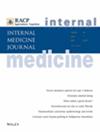Prevalence of heart failure pharmacotherapy utilisation, frailty and adverse drug events among hospitalised adults older than 75 years: a multicentre cross-sectional study
Abstract
Background
Optimal heart failure (HF) pharmacotherapy (guideline-directed medical therapy and diuretics) in older people with frailty is uncertain due to limited evidence.
Aims
To evaluate utilisation of HF pharmacotherapy and prevalence of polypharmacy, adverse drug events (ADEs), falls, delirium, renal impairment and duration of hospitalisation in older inpatients, according to frailty.
Methods
A retrospective cross-sectional study of the TO HOME cohort of 2000 inpatients ≥75 years admitted for ≥48 h to rehabilitation, geriatric or general medicine from 1 July 2016 to 30 June 2017 across six hospitals in Sydney, Australia. Data were collected from electronic medical records. International Statistical Classification of Diseases and Related Health Problems, Tenth Revision, Australian Modification identified HF diagnosis, ADEs and frailty using hospital frailty risk score. Outcomes included utilisation of HF pharmacotherapy; polypharmacy; ADEs, falls, delirium, renal and impairment; and duration of hospitalisation.
Results
Among 439 (22.0% of TO HOME cohort) patients with undifferentiated HF, 284 (69.5%) had intermediate or high risk of frailty, and 412 (94%) took ≥1 HF pharmacotherapy, with 357 (81.3%) patients on loop diuretics. Patients with high frailty risk frequently continued beta-blockers (70%) and discontinued renin-angiotensin system inhibitors (57%). Most patients experienced polypharmacy (n = 426, 97.0%). Renal impairment prevalence was 67%–76% across frailty groups. Increasing frailty risk (low, intermediate and high) was associated with increasing prevalence of ADEs (31%, 56% and 84%), falls (12%, 25% and 46%) and delirium (8%, 27% and 49%) and longer hospitalisation.
Conclusions
Frailty, HF-pharmacotherapy changes in hospital and ADEs were common among older inpatients with HF. The association of adverse outcomes according to frailty needs further investigation. Poor documentation of HF phenotype may be a barrier to medication optimisation in older inpatients.


 求助内容:
求助内容: 应助结果提醒方式:
应助结果提醒方式:


